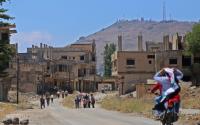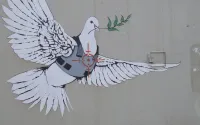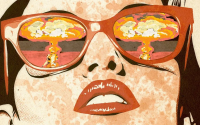3 August 2006
The grave tragedy that has been unfolding before our eyes in Lebanon, and the inability of the international community to bring it to an end after three weeks of suffering, unfortunately raise questions about the United States and its proud legacy of leadership for freedom and justice.
After all, my generation grew up with an image of the United States as standing for the revered values of democracy. It is sad that this image of a "kinder, gentler nation" is being tarnished as millions around the world watch in complete horror as events unfold in Lebanon.
Today live images of the carnage and destruction are broadcast directly into our households. Each time a bomb wreaks havoc on the streets of Beirut, it hits the consciences of people everywhere.
Throughout the world, the same question is being asked: Why has the sole superpower, which alone has the capability to stop this tragedy, turned a blind eye to the images of human suffering and a deaf ear to the cries for mercy?
The hopes for the democratic transformation of the Middle East that we, together with the United States and other allies, have been painstakingly attempting to cultivate are being shattered, along with the lives of the people of the region.
Does anyone have the right to allow this to happen: the creation of a deep sense of indignation that will inevitably leave responsible governments with the difficult task of managing justifiably outraged public opinion -- at a time when radicals and fanatics are looking for pretexts to justify their actions and to widen their influence?
Needless to say, this does not bode well for the much-needed dialogue and understanding between civilizations.
Retaining the higher moral ground is even more essential in the age of instant information. It is time for all of us to act upon what our collective conscience has been telling us for many days.
In Lebanon we have once again seen the limitations of our classic notions of security in the face of asymmetric challenges. The reality is that the use of disproportionate and indiscriminate force makes difficult situations even more intractable without enhancing anyone's security. In fact, if we take the long view, it will be seen that the reverse is happening.
The only way out of the present crisis is determined action by the international community that truly addresses the core issues that have been festering in the Middle East and that lie at the very roots of the conflict. This requires nothing less than genuine leadership, which must adhere to the values that it asks of others in order to be effective.
The writer is foreign minister and deputy prime minister of Turkey.
http://www.washingtonpost.com/wp-dyn/content/article/2006/08/02/AR2006080201389.html?sub=AR






